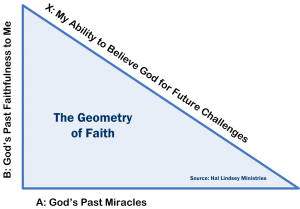Bible Study Made Simple
Title – Jesus Our High Priest
Teaching – Although the Hebrews needed to be able to “contrast and compare” Jesus and the High Priest, they were not far enough along spiritually to make the grade. Are we? Types are a central literary device in this passage (and the whole book!) . It is important to know what a type is.
Simply, types are people, things or events that foreshadow a fulfillment in the New Testament. The most common, of course are types of Jesus Christ. Melchizedek, discussed here, is a type of Christ.
Another example is of Sarah and Hagar in Gen 21:10and following as types of enslavement to the Law, outlined by Paul in Galatians 4:21-31
We use types because the New Testament clearly defines them, and we believe that the Holy Spirit, author of the Bible 2 Pet 1:21, 2 Tim 3:16-17.
Simply Broken Out Summary / Thoughts
| Heb 4:14-16 | The author picks back up from Heb 2:17 & 3:1 where the revelation of Jesus as High Priest is introduced, having gone through the necessity of belief and he warnings of failure to appropriate the rest we have in salvation and the accompanying power from the Holy Spirit. |
| Heb 5:1-4 | The attributes of the High Priest are to be human, to offer gifts and sacrifices, dealing kindly with broken humanity, and is appointed. |
| Heb 5:5-10 | Melchizedek was a suitable type of Christ as High Priest, because: He was a man (Heb 7:4; 1 Tim 2:5); He was a king-priest (cp. Gen 14:18 with Zech 6:12 – 13); His name means “my king is righteous” (cp. Isa 11:5), and he was king of Salem (i.e. “peace,” cp. Isa 11:6 -9); He had no recorded “beginning of days” (cp. John 1:1) or “end of life” (cp. Rom 6:9; Heb 7:23 -25); He was a high priest by human appointment (Ps 110:4). But the contrast between the high priesthood of Melchizedek and Aaron is only as to person, “order” (or appointment), and duration. In His work Christ follows the Aaronic pattern, the “shadow” of which Christ was the substance (Heb 8:1 – 6; 9:1 – 28). Source: Scovill notes on Heb 5:6 |
| Heb 5:11-14 | Oh snap, the writer is pointing put they Hebrew believers as spiritual babies. It is an unflattering, borderline frustrating passage for the writer. Note the key to spiritual maturity, training. Training of what???? |
Memory Verse – Although He was a Son, He learned obedience from the things which He suffered. — Heb 5:8
Application – Practice spiritual maturity by obedience to the Word of God.

